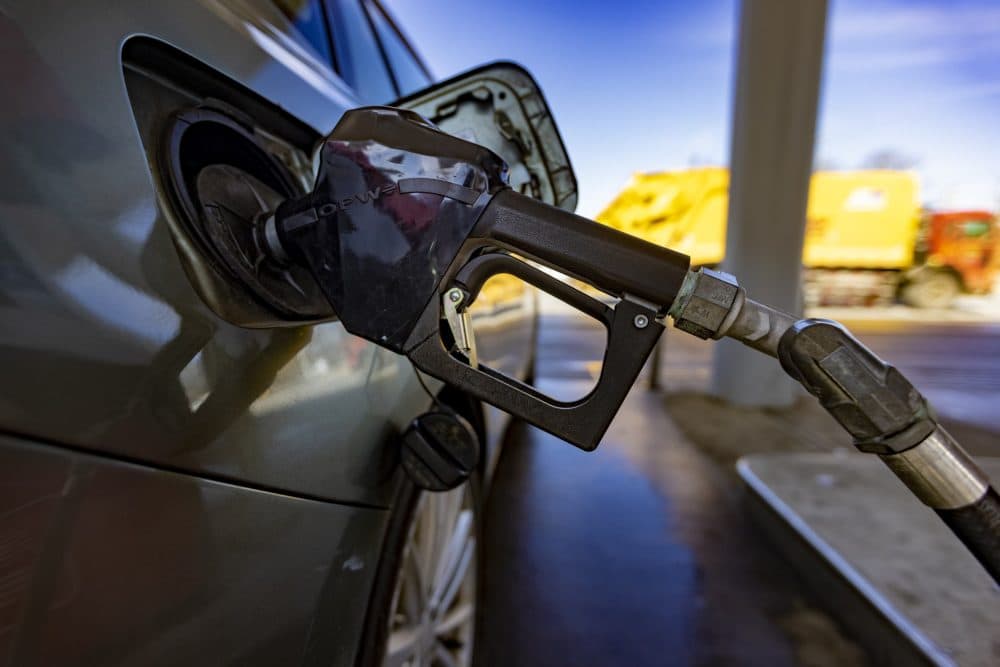Advertisement
Mass. residents feel the pinch of high gas prices

When Rachel Dinehart saw $5.29 per gallon on the screen at the gas station, she made a quick decision.
"I’m doing half a tank. Five gallons," she said.
Dinehart lives in Brighton. Her fiancé drives a lot for work, so as the price per gallon soars, they've noticed a growing dent in their budget.
“It’s made us save less money," she said. "[We're] maybe going out to eat less and stuff like that. At least for the time being.”
Dinehart said she's optimistic that the surge in fuel prices is temporary. She and her fiancé are still planning road trips for the summer. But she knows more drastic budget cuts may be coming if high gas prices linger for more than six months.
For people whose livelihood depends on driving, those drastic changes are already happening.
Tara Von, who drives for Uber around Greater Boston, made the decision to quit the rideshare business after six years. Her older Lexus uses premium gas. At the same time, her vehicle doesn't qualify for Uber's premium service, which allows drivers to charge and earn more per trip.
"It’s literally costing me to drive," Von said. "They [Uber] need to figure something out or they’ll end up with no drivers."
Both Uber and Lyft have extended a reimbursement program to help cover the rising cost of fuel, offering drivers up to $0.55 per trip.
That's not nearly enough, Von said. She's on the hunt for another job and said many of her rideshare colleagues are doing the same.
It's not just the fuel in the family car that's cause for concern. For residents in the Northeast, the high cost of diesel has a direct impact on other goods, said Branner Stewart, a Senior Research Manager at the UMass Donahue Institute.
"A lot of the goods that are traveling by freight, whether by truck or train, are coming in from the big West Coast ports," Stewart said. "So the costs are quite a bit higher."
Faced with higher shipping prices, local businesses have to either take a harder hit to their bottom line or pass the costs on to consumers.
One area where Massachusetts is at an advantage, said Stewart, is in the nature of its economy.
"Massachusetts, being a very technically advanced economy, we're likely to be a little bit less energy intensive than other states that are heavy manufacturing — states like Indiana, Texas, Louisiana," he said.
